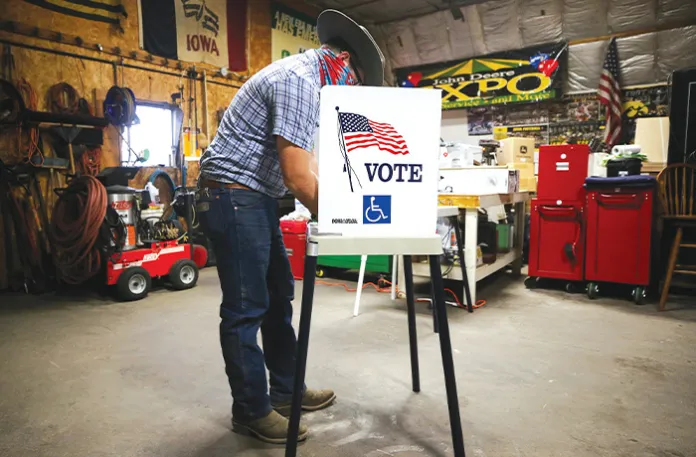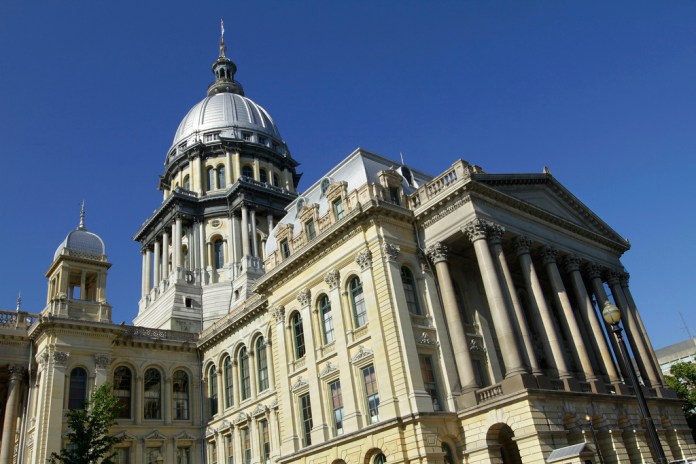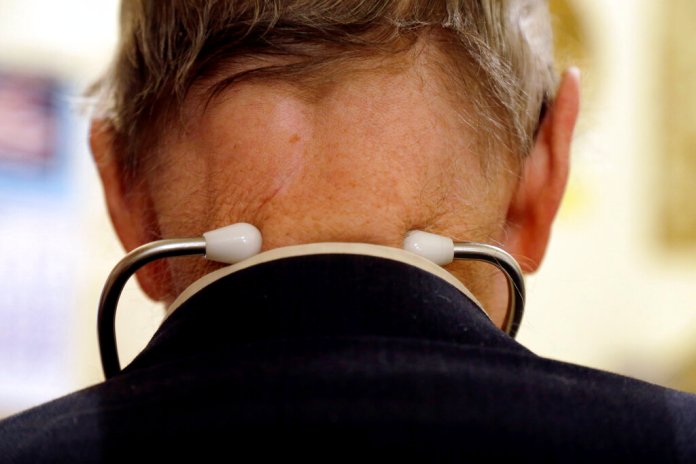Arguments fly in Illinois’ fight over ending swipe fees on taxes and tips – Washington Examiner
The article discusses a legal dispute in Illinois regarding a new state law that aims to eliminate interchange fees on taxes and tips, set to take effect in 2025. The Illinois Bankers Association is contesting the law, arguing that it could lead to disruption in the payment systems and negatively impact consumers, small businesses, and community financial institutions. In this context, Senator Dick Durbin has submitted an amicus brief urging clarification from the Office of the Comptroller of the Currency (OCC) regarding interchange laws, asserting that statements made by the OCC were incorrect. The Illinois Bankers Association warns that the new law could benefit large retailers at the expense of smaller entities and may conflict with federal banking regulations. Meanwhile, the Illinois Retail Merchants Association supports the law, indicating a divide between retail interests and the banking sector.
Arguments fly in Illinois’ fight over ending swipe fees on taxes and tips
(The Center Square) – The Illinois Bankers Association says Illinois U.S. Sen. Dick Durbin writing a letter to the Office of the Comptroller of the Currency is “missing the forest for the trees.”
An Illinois law that goes into effect in 2025 seeks to bar interchange fee collection on taxes and tips, which sparked a legal fight with the banks. Illinois Bankers Association v. Raoul is now being litigated in federal court with financial institutions suing to block the law’s implementation.
In a friend of the court brief, Durbin, D-Springfield, urged the OCC to clarify its understanding of interchange laws. Durbin accused the OCC of making incorrect statements in an amicus brief submitted in the case.
Carolyn Settanni, executive vice president and general counsel for the Illinois Bankers Association, said Durbin filed his own amicus brief and the judge can decide if the OCC made “incorrect statements.”
“This Illinois law is going to unleash chaos on Illinois consumers, small businesses and community financial institutions and it is going to happen in a matter of months unless the court steps in, which we have requested,” said Settanni. “The special interest here is the mega retailers and they are trying to increase their bottom line by forcing the entire payment industry to make this huge change in a way that will benefit mega retailers but won’t benefit smaller players and certainly not Illinois consumers and community financial institutions.”
Settanni said federal law provides a national banking system that can operate without state laws that interfere with the powers a national bank has.
“That’s why the Illinois law is preempted by the National Bank Act and that’s a threat that goes through all of our briefs, as well as the OCC’s amicus brief. They’re stating that it’s going to fragment and disrupt our payment system that’s set up by national banks and because of that disruption the Illinois law is preempted by that federal law,” said Settanni.
Settanni said the state law throws simple swipe transactions that are safe, secure and efficient out the window and there is no other jurisdiction in the world that’s looking to change the current payment system.
Rob Karr, president and chief executive of the Illinois Retail Merchants Association, said the Illinois Bankers Association is not arguing that they can’t make changes to comply with the law but rather they can’t comply by the deadline, which is July 1, 2025.
“That ignores the fact that, as we’ve pointed out repeatedly, that they’re [the bankers] already doing it on business to business transactions, they already separate out for some tax-exempt organizations and tax-exempt transactions,” said Karr. “So it is not that complicated.”
The Illinois Interchange Fee Prohibition Act prevents payment card networks, acquirers, processors and issuers from charging interchange fees on taxes or gratuities in electronic transactions. The OCC supports the Illinois Bankers Association’s argument that the IFPA is preempted by the National Bank Act.
“They’re claiming the federal law preempts it [the state law], that only the federal government can regulate any part of this. No one else seems to believe that’s the case, but that’s what the courts will ultimately decide,” said Karr.
The OCC stated in its amicus brief that the state law is, “ill-conceived, highly unusual and largely-unworkable.”
" Conservative News Daily does not always share or support the views and opinions expressed here; they are just those of the writer."




